21 Unsafe Human Foods Dogs Can Not Eat To Avoid
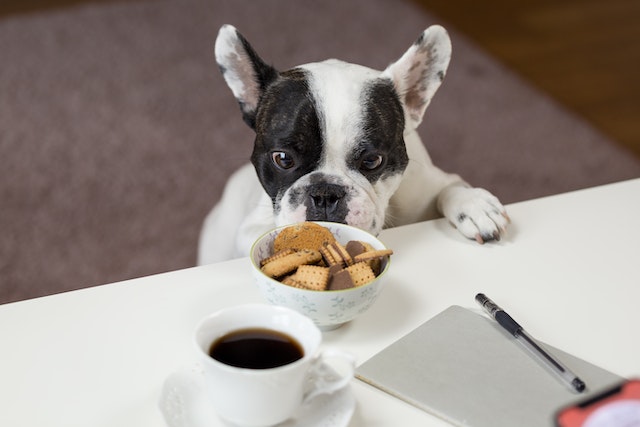
Hey there, fellow dog lovers! We all know how tempting it can be to share our favorite foods with our furry friends, but did you know that some human foods can be harmful to dogs?
In this blog post, we’ll dive into the top foods you should avoid feeding your pup, keeping their health and happiness in mind.
Let’s get started…
Human Foods Dogs Can Not Eat
There are several human foods that dogs cannot eat as they can be toxic to them. Some examples include chocolate, grapes and raisins, onions and garlic, and avocados.
These foods can cause a range of issues in dogs, from gastrointestinal problems to organ damage, and it’s important for dog owners to be aware of these potential dangers and avoid feeding them to their pets.
Let’s dive deeper for a better understanding…
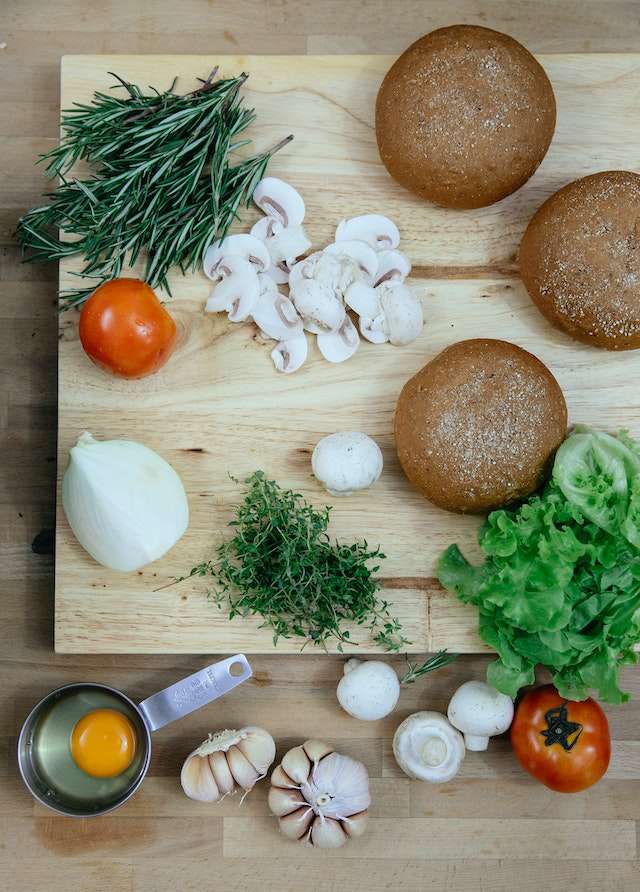
The following are some common human foods dogs can not eat:
1. Grapes and Raisins
Grapes and raisins are toxic to dogs and should never be consumed by them. The reason behind this is not fully understood, but it is believed that a substance within grapes and raisins can cause kidney failure in dogs.
Even small amounts can be harmful and potentially fatal for dogs. Symptoms of grape or raisin toxicity in dogs include vomiting, diarrhea, decreased appetite, and lethargy.
Immediate veterinary attention is necessary if a dog has consumed grapes or raisins to prevent further complications.
2. Onions and Garlic
Onions and garlic are two common ingredients found in many human foods, but they can be toxic to dogs.
Both onions and garlic contain compounds called thiosulphate, which can cause damage to a dog’s red blood cells.
This can lead to a condition called hemolytic anemia, which can be life-threatening for dogs.
Even small amounts of onions or garlic can be harmful to dogs, and the symptoms can include weakness, vomiting, diarrhea, and difficulty breathing.
Therefore, it is important to keep foods containing onions and garlic out of reach of dogs to ensure their safety.
3. Alcohol
Alcohol is toxic to dogs and should never be given to them. Dogs lack the necessary enzymes to metabolize alcohol, leading to serious health complications.
Even small amounts of alcohol can be dangerous for dogs, causing symptoms like vomiting, diarrhea, coordination problems, and even alcohol poisoning.
Alcohol consumption can also lead to liver damage and respiratory distress, and in severe cases, it can be fatal for dogs.
It is crucial for pet owners to ensure that alcohol is kept out of reach from their furry companions to avoid any potential harm.
4. Chocolate

Chocolate is considered toxic to dogs and should never be given to them. It contains a substance called theobromine, which dogs cannot metabolize effectively.
Theobromine can cause various symptoms in dogs, including vomiting, diarrhea, rapid breathing, increased heart rate, and even seizures or death in severe cases.
The darker the chocolate, the higher the theobromine content, making it more dangerous for dogs.
It is important to keep all chocolate products out of a dog’s reach to prevent accidental ingestion and potential harm to their health.
5. Coffee and caffeine products
Coffee and caffeine products are not safe for dogs to consume. Caffeine is a stimulant that affects the central nervous system and can have toxic effects on dogs.
It can lead to increased heart rate, elevated blood pressure, tremors, seizures, and even death.
Dogs are more sensitive to caffeine than humans, and even small amounts can be harmful.
Therefore, it is crucial to keep all coffee products, including coffee beans, grounds, and beverages, away from dogs to ensure their safety and well-being.
6. Xylitol
Xylitol is a sugar substitute commonly found in chewing gum, candy, and other human foods. It is not safe for dogs to consume because it can cause a rapid release of insulin in their bodies.
This can lead to a dangerous drop in blood sugar levels, known as hypoglycemia. Xylitol can also cause liver damage in dogs, potentially leading to liver failure.
Even small amounts of xylitol can be toxic to dogs, so it is important to keep products containing xylitol out of their reach.
If a dog ingests xylitol, immediate veterinary care is necessary to prevent serious health complications or even death.
7. Fat trimmings
Fat trimmings are not safe for dogs to consume due to several reasons. Firstly, fat trimmings can cause pancreatitis in dogs, a condition characterized by inflammation of the pancreas.
Secondly, excessive fat intake can lead to obesity in dogs, which can lead to various health issues.
Thirdly, fat trimmings may cause gastrointestinal upset in dogs, resulting in symptoms like vomiting and diarrhea.
Additionally, fat trimmings can pose a choking hazard for dogs, especially if they are given in large pieces.
Lastly, certain fats, such as those from cooked bones or seasoned meat, can be toxic to dogs and should be strictly avoided.
8. Macadamia nuts
Macadamia nuts are considered unsafe for dogs and should be avoided in their diet.
These nuts contain a toxin that can be harmful to dogs, causing symptoms such as weakness, vomiting, tremors, and hyperthermia.
Even small amounts of macadamia nuts can lead to adverse effects in dogs. The exact reason behind the toxicity of macadamia nuts for dogs is still unknown.
However, it is advised to keep these nuts out of reach of dogs to prevent any potential health risks.
9. Spicy Foods
Spices, such as garlic, onion, and chili powder, are not safe for dogs to consume. These spices contain compounds that can be toxic to dogs, causing various adverse effects.
Chili powder, on the other hand, can cause gastrointestinal upset and irritation in dogs.
Additionally, spices often used in human foods may also be mixed with other ingredients that are harmful to dogs, such as salt or artificial sweeteners.
Therefore, it’s best to keep spices and spicy foods away from dogs to ensure their well-being.
10. Sugary Foods
Sugary foods pose a significant risk to dogs and should be avoided. Firstly, dogs lack the necessary enzymes to properly digest sugars, leading to digestive issues such as diarrhea and upset stomachs.
Secondly, consuming sugary foods can cause a rapid increase in blood sugar levels in dogs, potentially leading to insulin spikes and even diabetes.
Thirdly, sugary treats contribute to weight gain, which can lead to obesity and associated health problems in dogs.
Additionally, sugary foods can be harmful to a dog’s dental health, promoting tooth decay and gum disease.
Lastly, certain artificial sweeteners commonly found in sugary foods, such as xylitol, are toxic to dogs and can cause liver damage or even be fatal.
Therefore, it is crucial to keep sugary foods out of reach of our canine companions to ensure their well-being.
11. Salty Foods
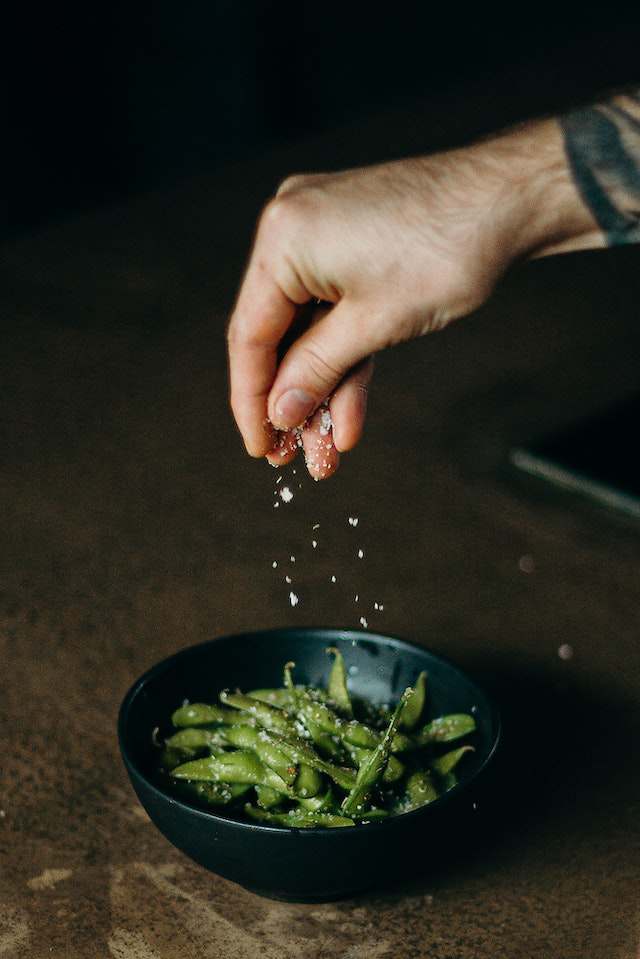
Salty foods are not safe for dogs due to their adverse effects on their health.
Dogs have different salt requirements compared to humans, and excessive salt intake can lead to sodium ion poisoning.
This can cause symptoms like increased thirst, vomiting, diarrhea, tremors, seizures, and even death in severe cases.
Additionally, high salt intake can lead to dehydration in dogs, which can be detrimental to their overall well-being.
It is important for dog owners to be aware of the dangers of feeding salty foods to their pets and to provide them with a balanced and appropriate diet to ensure their health and safety.
12. Seasonings
Seasonings are not safe for dogs to consume due to several reasons. First, many seasonings contain ingredients that are toxic to dogs, such as garlic and onion, which can lead to anemia and gastrointestinal issues.
Second, some seasonings, like salt and certain spices, can cause dehydration and electrolyte imbalances in dogs.
Third, the high sodium content in many seasonings can put a strain on a dog’s kidneys and lead to kidney damage.
Additionally, certain seasonings may contain artificial additives and preservatives that can be harmful to a dog’s health.
Lastly, the strong flavors and spices in seasonings can irritate a dog’s digestive system and cause discomfort or even allergic reactions. Therefore, it is crucial to keep all seasonings away from dogs to ensure their well-being.
13. Fruits with Pits
Fruits with pits, such as cherries, peaches, and plums, are not safe for dogs to eat. The pits contain a hard outer shell that can pose a choking hazard for dogs.
Additionally, these pits contain cyanide, which is toxic to dogs when ingested in large quantities.
Cyanide can cause symptoms like difficulty breathing, vomiting, and even death in severe cases. The presence of pits also increases the risk of intestinal blockage or obstruction if a dog swallows them.
Therefore, it is crucial to keep fruits with pits out of reach from dogs to ensure their safety and well-being.
14. Raw Potatoes
Raw potatoes are not safe for dogs to consume due to several reasons. Firstly, raw potatoes contain solanine, a toxic compound that can cause gastrointestinal upset, including vomiting and diarrhea, in dogs.
Secondly, raw potatoes are hard and difficult for dogs to digest, potentially leading to digestive issues and blockages.
Thirdly, raw potatoes can also contribute to a sudden increase in blood sugar levels in dogs, which can be harmful, especially for diabetic dogs.
Additionally, raw potatoes may harbor harmful bacteria or parasites that can cause food poisoning in dogs.
Lastly, the green parts of raw potatoes, including the skin and sprouts, contain higher levels of solanine, making them even more toxic to dogs. Therefore, it is crucial to avoid feeding raw potatoes to dogs to ensure their safety and well-being.
15. Almonds
Almonds are not safe for dogs to consume due to several reasons. Firstly, almonds can pose a choking hazard for dogs, especially if they are not properly chewed or if a large quantity is ingested.
Secondly, almonds are high in fat, which can lead to pancreatitis in dogs. Additionally, almonds contain a substance called cyanogenic glycosides, which can be toxic to dogs and cause symptoms such as nausea, vomiting, and diarrhea.
Furthermore, the outer shell of almonds can be difficult for dogs to digest, potentially leading to gastrointestinal blockages.
Lastly, almonds can also be salted or seasoned, which can introduce additional harmful ingredients into a dog’s diet. It is best to avoid feeding almonds to dogs to ensure their well-being.
16. Yeast & Raw Dough

Yeast and raw dough are considered unsafe for dogs to consume due to several reasons.
Firstly, yeast can cause excessive gas production in a dog’s digestive system, leading to bloating and discomfort.
Secondly, when yeast ferments, it produces alcohol, which can be toxic to dogs. Additionally, the expanding dough can cause blockages in a dog’s digestive tract, leading to serious health issues.
Moreover, raw dough contains raw eggs, which may contain harmful bacteria like Salmonella, posing a risk of food poisoning for dogs.
Lastly, the high carbohydrate content in raw dough can lead to weight gain and other health problems in dogs.
17. Raw Eggs
Raw eggs are generally not safe for dogs to consume. One reason is the risk of salmonella contamination, which can cause severe digestive issues in dogs.
Additionally, raw eggs contain avidin, a protein that can interfere with the absorption of biotin, a B vitamin essential for dogs’ healthy skin and coat.
Raw eggs may also lead to an imbalance in the calcium and phosphorus ratio, potentially causing skeletal issues in growing dogs.
Lastly, raw eggs have the potential to cause food poisoning, leading to symptoms like vomiting and diarrhea in dogs. Therefore, it is best to avoid feeding raw eggs to dogs to ensure their well-being.
18. Cooked Bones
Cooked bones are considered unsafe for dogs due to several reasons. Firstly, when bones are cooked, they become brittle and can easily splinter, posing a serious choking hazard to dogs.
Secondly, these splintered bones can also cause severe internal injuries, such as punctures or tears in the digestive tract.
Additionally, cooked bones can lead to intestinal blockages, which may require surgical intervention to resolve.
Moreover, the cooking process removes moisture from the bones, making them harder and more prone to causing dental fractures or damage.
Lastly, cooked bones can also harbor harmful bacteria like Salmonella, which can lead to food poisoning in dogs. It is crucial to avoid giving dogs cooked bones to ensure their safety and well-being.
19. Artificial Sweeteners
Artificial sweeteners like aspartame pose a significant risk to dogs and should be avoided in their diet. Aspartame contains a compound called phenylalanine, which can be toxic to dogs.
When ingested, phenylalanine can accumulate in their system and lead to serious health issues. Additionally, aspartame can cause a drop in blood sugar levels, resulting in weakness, seizures, and even coma in dogs.
It is crucial to note that dogs lack the necessary enzymes to metabolize aspartame effectively, making it even more dangerous for them.
Therefore, pet owners should be cautious and avoid feeding any foods containing aspartame to their dogs to ensure their safety and well-being.
20. Mushrooms
Mushrooms are not safe for dogs to consume due to their potential toxicity. Certain species of mushrooms, such as the Amanita genus, can contain toxins that can be harmful or even fatal to dogs.
Dogs lack the necessary enzymes to break down these toxins, which can lead to severe gastrointestinal distress, liver damage, or neurological symptoms.
Additionally, wild mushrooms can be difficult to identify, increasing the risk of accidental ingestion of toxic varieties.
It is best to err on the side of caution and avoid feeding mushrooms to dogs to ensure their safety and well-being.
21. Corn on the Cob
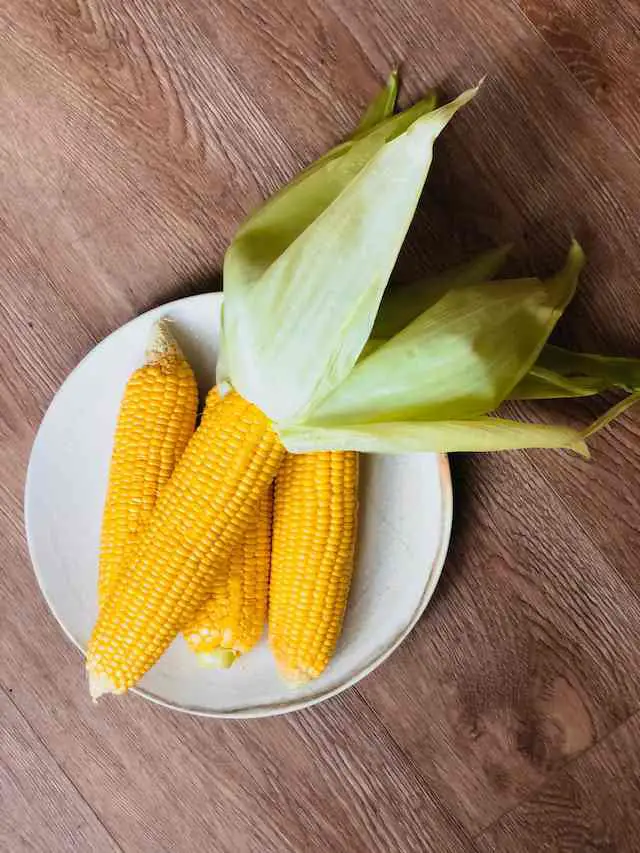
Corn on the cob is not safe for dogs to consume due to several reasons. Firstly, dogs lack the digestive enzymes necessary to break down the cellulose found in corn, which can lead to digestive issues such as upset stomachs and diarrhea.
Additionally, the cob itself poses a choking hazard and can cause intestinal blockages if ingested. Corn is also high in carbohydrates, which can lead to weight gain and other health issues in dogs.
Lastly, corn is often genetically modified and sprayed with pesticides, which can be harmful to dogs. Therefore, it is best to avoid feeding corn on the cob to dogs to ensure their safety and well-being.
Read more about caring for your dog.
Conclusion
In conclusion, when it comes to our furry friends, we must be mindful of what we feed them.
While we may be tempted to share our favorite human foods with them, it’s crucial to remember that some can be toxic to dogs.
So, let’s keep our canine companions safe and healthy by sticking to their specially formulated doggy diets.

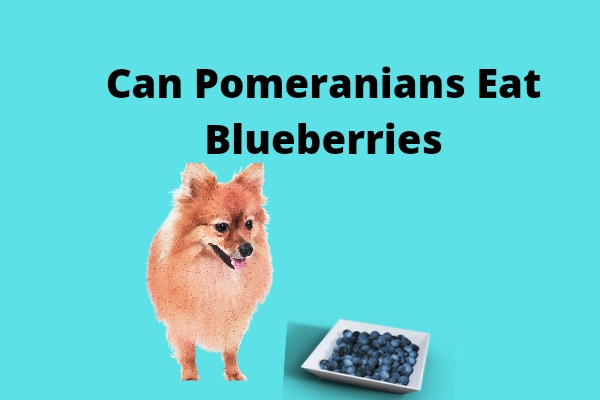

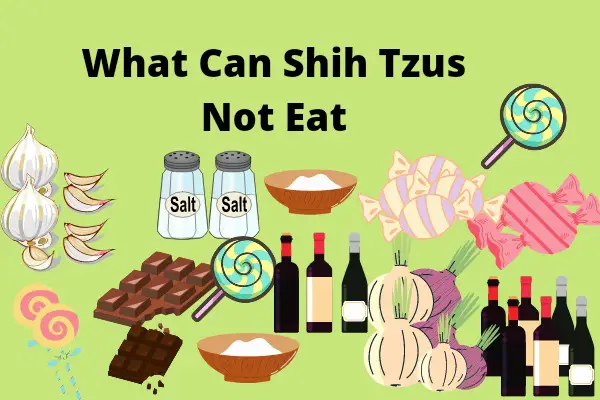

![Can Beagles Eat Strawberries [How To Feed] Can Beagles Eat Strawberries](https://petcreeks.com/wp-content/uploads/2021/04/Can-Beagles-Eat-Strawberries.jpg)
